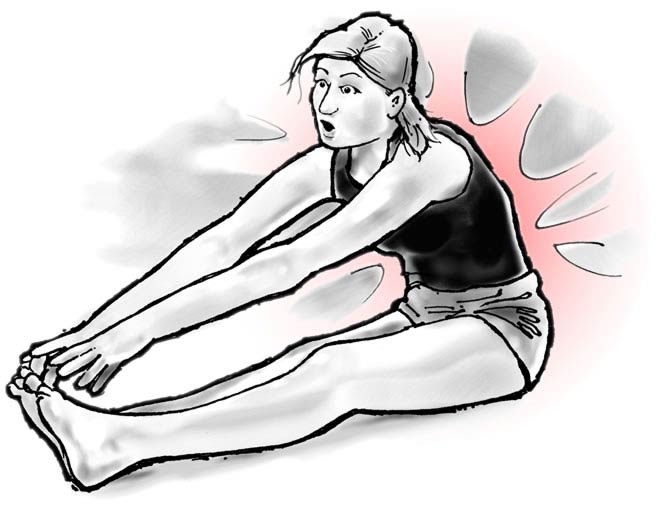What do people think triggered their back pain?
More than twenty years ago, just getting started as a Registered Massage Therapist, I noticed that people had a lot of odd ideas about what triggered their back pain. Many of them seemed… well, harmless? Almost anything that happened in the twenty-four hours before the onset of back pain was getting the blame, whether it made any sense or not.
- “I folded my laundry quite vigorously the day before this started, and I was like, ‘I’ve made a huge mistake.’”
- “I broke wind hard, an immensely powerful fart … and then, just 23 hours later, bam! Back pain! Coincidence? I think not.”
I exaggerate, but weirdly not that much. There were definitely times when a very earnest “trigger report” struck me as absurd. Even when the trigger happened at the same time as the pain, it was often surprisingly trivial, seemingly incapable of actually causing any kind of injury.
- “I was waving at someone, but gently, you know? Like a queen wave. And then, bam! That’s exactly when my lumbar spine attacked me!”
- “I opened the fridge, and that’s when it happened. Reckless, I know, I know!”
Triggers just never seemed to have a compelling or informative relationship with back pain. This was one of my earliest significant clinical observations, but I had very little science to compare notes with. I had to wait several years for that.

What triggers disc herniations … according to science instead of junior massage therapists
(Probably not what actually does trigger them in many cases… just what people think triggers them. But that is still quite interesting.)
Suri et al studied trigger reports in 150 people who had back pain and associated intervertebral disc herniations. Some kind of “inciting event” — a trigger — was reported for about 40% of them, and only about 9% of those involved any kind of lifting.
It also didn’t seem matter what the trigger was: there was no link between any known trigger and the severity of the case. Not even heavy lifting triggers!
And most cases, over 60%, had no trigger at all: “spontaneous” herniations. Not only can disc herniations can just happen, for no apparent reason, that’s actually how it usually goes.
Here are thirty specific back pain triggers identified by at least one of the roughly sixty people that reported one:
- Non-lifting physical activities
- Specific movements
- Bending
- Leaning
- Misstepping
- Reaching
- Slipping without falling
- Twisting
- Walking
- Activities of Daily Life
- Closing doors
- Dressing
- Household tasks (vacuuming, washing car)
- Making the bed
- Shoveling snow
- Transferring in/out of bed
- Transferring in/out of car
- Yard work and maintenance (flooring, tiling, roofing)
- Sports and Recreation
- Golf
- Gym exercise
- Squatting
- Hockey
- Skiing
- Tennis
- Specific movements
- Heavy Lifting
- Moving furniture
- Transferring a patient
- Very heavy loads >75 Ibs
- Light Lifting
- Light loads (ladder, box)
- Very light lifting (box of tissue paper)
- Non-exertional occurrences
- Coughing
- Prolonged sitting
- Sneezing
- Physical trauma
- Falling
- Motor vehicle accident
These results are nicely in line with the observations I made early in my career:
- Almost anything can be considered a trigger, and many triggers are trivial.
- There’s often no clear trigger at all.
- The stereotypical trigger of “bad lifting” is actually rare.
- The relationship between triggers and back pain is generally messy and uncertain.
- The trigger has very little to do with the severity of the case, probably because in many cases the trigger is just speculative and didn’t actually have anything to do with it.